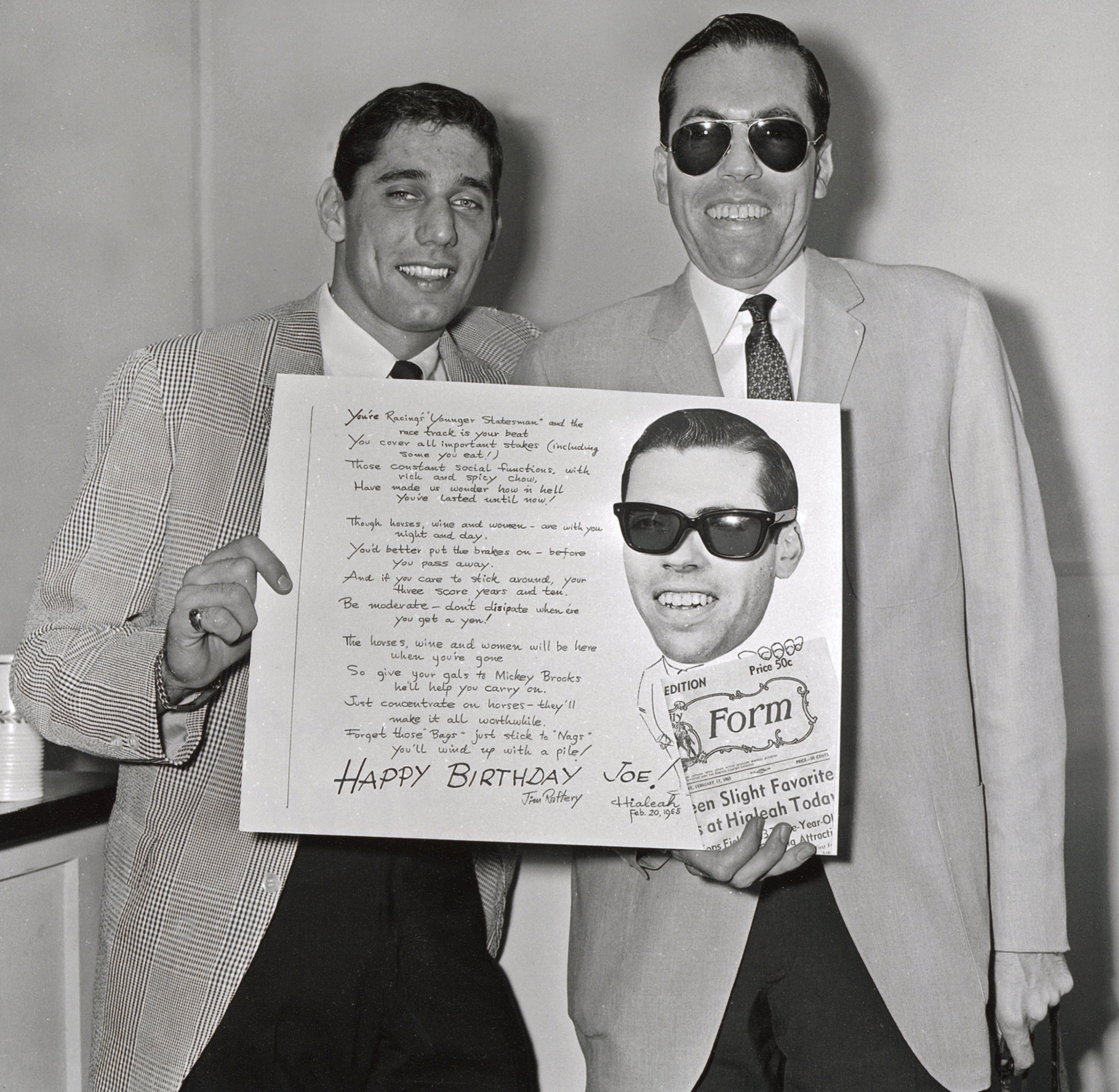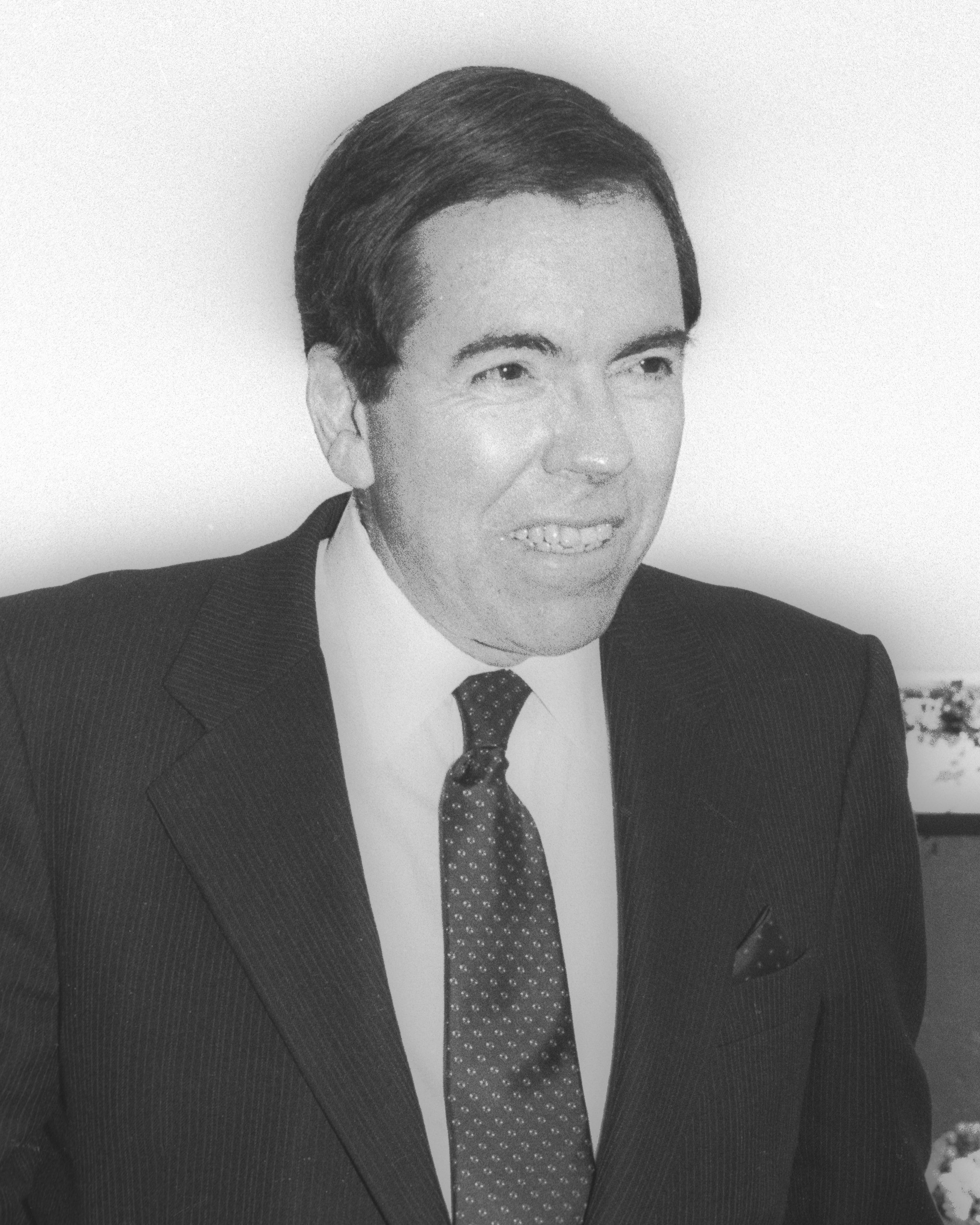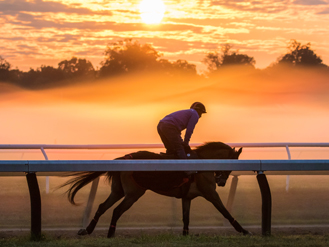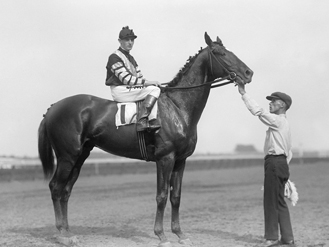Joe Hirsch
Joe Hirsch was a racing journalist and so, strictly speaking, had many compatriots during his career. Hirsch, however, is difficult to fit into any category. He fulfilled the best ambitions of the racing journalists, including integrity, accuracy, dogged work ethic, and a ceaseless gathering of knowledge of his subject, Along the way, however, he came to be seen as a veritable ambassador of the Turf. This mantle was not sought consciously but was settled upon him as a result of an unfailing gentlemanliness and a devotion to the best of the thoroughbred sport which guided the use of his talents.
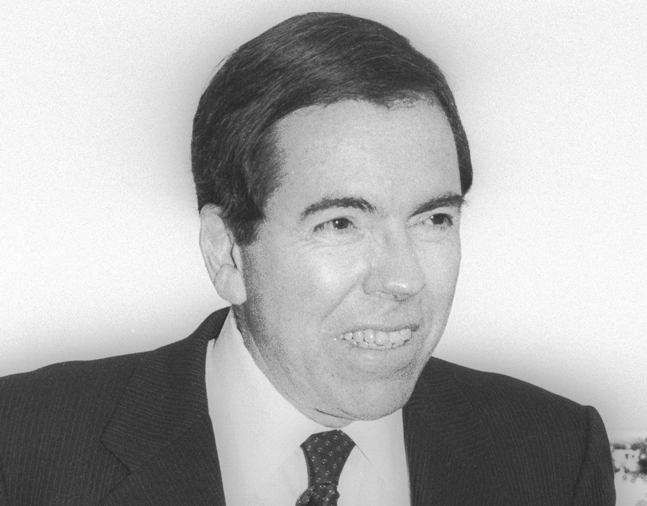
2024
Feb. 27, 1928, New York City
Jan. 9, 2009, New York City
Biography
Joe Hirsch was a racing journalist and so, strictly speaking, had many compatriots during his career. Hirsch, however, is difficult to fit into any category. He fulfilled the best ambitions of the racing journalists, including integrity, accuracy, dogged work ethic, and a ceaseless gathering of knowledge of his subject, Along the way, however, he came to be seen as a veritable ambassador of the Turf. This mantle was not sought consciously but was settled upon him as a result of an unfailing gentlemanliness and a devotion to the best of the thoroughbred sport which guided the use of his talents.
A writer can crusade for integrity and sportsmanship, and in most cases, this involves expounding on various ways some elements dishonor the game. Somehow, Joe Hirsch stood for the good and made his eloquent case for it by occupying the higher realm virtually always and only. Perhaps his career can be said to have illustrated that constancy in being high class makes the case for quality and integrity without the need to describe the nether ugliness of those who would bring dishonor.
Upon Hirsch’s death at the age of 80 in 2009, memories elicited from his fellow racing writers were indicative not only of admiration but of a keen wish that their own words might do him justice.
“Hirsch leaves behind a legacy that transcends his profession, and the best of what is now a bygone era,” wrote Steve Haskin in The BloodHorse. “Slowed in his later years by Parkinson’s disease, Hirsch still managed to make his backstretch rounds and turn out his daily columns with the same elegance and enthusiasm he had since 1954.”
Dan Liebman, then editor-in-chief of The BloodHorse, extolled that “Joe was the epitome of class, strolling the backside in his trademark dark sunglasses and wearing a sport coat and tie. He was famous for using a tiny notebook and writing very little in it. He would listen to a trainer for 15 minutes, jot down three or four words, and later pound out a column with verbatim quotes and accurate workout times. The notebook that did have a lot written in it was Joe’s compilation of phone numbers. Every trainer was happy to be called to his stable office when Joe was on the line.”
“Joe Hirsch was much more than just the dean of American racing writers for half a century,” wrote Steven Crist, a longtime colleague of Hirsch and former publisher of Daily Racing Form. “He was a global ambassador for the sport, a mentor to two generations of journalists, and probably the most universally respected figure in the world of horse racing.”
Leaders in other aspects of the sport were equally conscientious about doing Hirsch justice in memory.
“Respected by his peers, revered by his colleagues, he was truly one of racing’s treasures,” said Ted Bassett, longtime head of Keeneland and of the Breeders’ Cup.
Hall of Fame trainer Shug McGaughey said, “I was always flattered whenever he wrote an article about me and quoted me because he always made me sound a lot better in print. He will be missed by me and, more importantly, by horse racing.”
When Hirsch was remembered in a special ceremony at Belmont Paark several months after his death, trainer Hall of Fame trainer D. Wayne Lukas described his importance in terms of other sports: “Joe at any race was like Tiger Woods with an eight-foot putt to win a major or Michael Jordan with a clear look to win a championship. He always made the game look special.”
Born in New York City in 1928, Joe Hirsch enjoyed a prolific journalism career that carried him from the eras of Citation and Native Dancer to the dawn of the 21st century. He earned a degree in journalism from New York University, then served in the United States Army for four years. Following his time in the military, Hirsch worked briefly for The New York Times before joining the staff at The Morning Telegraph. He then transitioned to the Telegraph's companion publication, Daily Racing Form, where he spent 49 years (1954 through 2003) and became one of racing’s most visible and impactful figures. Hirsch became the Form’s executive columnist in 1974 and held that title until his retirement in 2003.
Hirsch’s signature work occurred each spring as he chronicled the quest for the American classics in his Kentucky “Derby Doings” for the Form, but beyond that the entire racing world was included in his writing. His support was helpful in the creation of the Arlington Million in 1981, a midsummer special for older runners that reached out to the best stables of Europe. Likewise, Hirsch was there at the dawn of the Japan Cup, the Breeders’ Cup, and the Dubai World Cup, stamping each event with the imprimatur of his formidable reputation.
The “Derby Doings” columns, however, did underline his particular affection for the first race of the Triple Crown. Hirsch wrote that, “There have been so many good stories over the years, so many wonderful people. All three (Triple Crown) races have their own flavor and in their own unique ways are equally colorful, but the Derby is the one I’ve enjoyed most over the years. It has its own mystique because it is first. The Preakness has its own charm, and the Belmont can be climactic, the real test of the champion. But the Derby is special to me.”
A lifelong bachelor, Hirsch was able to devote much of his spare time to the game in a social sense. During a typical year, he traveled from winters at the Miami Springs Villas for the Hialeah and Gulfstream meetings to Kentucky in the spring and eventually back to his New York apartment. Many a nice dinner in good restaurants had as Hirsch’s guests members of the Turf, whether they be distinguished or not. Many times, his guests would include a youngish sort on the way upward in some aspect of the racing industry.
Haskin described Hirsch as having “lived a flamboyant life, thanks in part to the years 1965-76, when he roomed with New York Jets quarterback Joe Namath, known in the Big Apple as ‘Broadway Joe.’ Hirsch was friends with Jets owner Sonny Werblin, who asked him to stay close to his star athlete and act as a stabilizing influence.”
Haskin described Hirsch as existing “on a different plane than other people, though he would never admit it. Whether he was fraternizing with the Whitneys — Sonny and Marylou — or sharing a banana with the jocks’ room attendant at Monmouth Paark, he made everyone feel equally comfortable in his presence.”
There was also a recognition that Hirsch developed a close personal tie with the remarkable individual who for years owned Daily Racing Form. This was Walter Annenberg, an American businessman, investor, philanthropist, and diplomat. Annenberg owned and operated Triangle Publications, whose eclectic stable of periodicals ranged from the racing paper to TV Guide and Seventeen magazine, etc. Annenberg was appointed the United States Ambassador to the United Kingdom by President Richard Nixon in 1969. Hirsch spoke of an occasion when he asked Form management to provide special transportation to a race track for a particular event. When management resisted, Hirsch remarked, “I’d hate to have to phone the Ambassador!” Point made.
Hirsch was a leader among Turf writers in an organizational way as well as setting his example. In 1959, he became the founding president of the National Turf Writers Association (now the National Turf Writers and Broadcasters.) He also was voted a remarkable list of honors, including some primarily associated with Turf writers but also others of broader scope. The Thoroughbred Club of America selected him as Honor Guest for its annual Testimonial Dinner, and Hirsch also was voted The Jockey Club Medal and an Eclipse Award of Merit (as well as an Eclipse specifically for his writing).
Other honors include the Engelhard Award, the Big Sport of Turfdom Award, the Turf and Field’s Governor’s Dinner citation, and the Harry L. Straus Award. The NTWA founder fittingly received that association’s trio of the Walter Haight Award, Joe Palmer Award, and Mr. Fitz Award. In England, Hirsch was voted the Lord Derby Award given by British racing writers.
Unique honors also were conferred on Hirsch, both during and after his lifetime. These include press boxes at Saratoga and Churchill Downs being named for him, a pair of scholarships given in his name, and the naming of the Joe Hirsch Media Roll of Honor. Following his death, the Media Roll of Honor was established by the National Museum of Racing, not as a category of its Hall of Fame but as a way of honoring individuals who earn distinction in Hirsch’s specific career paths. The New York Racing Association changed the name of its Turf Classic to the Joe Hirsch Turf Classic in 2004, following his retirement.
The five books Hirsch authored included two about Hall of Fame trainers: The Winner’s Circle: The Jones Boys of Calumet Farm (co-authored with Gene Plowden) and The Grand Senor: The Fabulous Career of Horatio Luro. His other books were First Century, chronicling 100 years of Daily Racing Form; a Treasury of Questions and Answers, and Kentucky Derby: The Chance of a Lifetime (co-authored with Jim Bolus).
Among Hirsch’s friends and admirers was Chick Lang, the colorful Pimlico executive instrumental in the modern promotion of the Preakness Stakes. Lang’s role gave him particular appreciation for what Hirsch brought to the Turf, and he was enthusiastic in his regard. Lang said Hirsch “was one of a kind. Everyone loved and respected him. There will never be another like him.”
Media
